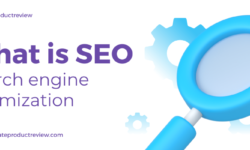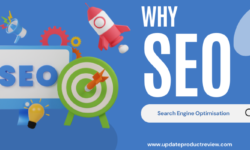Analytical Overview: Revealing Secrets
Into the world of analytics, a potent tool that enables you to analyze the effectiveness of your online endeavours, welcome to this SEO course. Understanding Analytics for Effective Digital Strategy is the foundation of any good digital strategy since it offers priceless insights into user behaviour, website performance, and the success of your SEO campaigns.
Fundamentally, analytics is the process of gathering, evaluating, and interpreting data to understand various facets of your online presence. It acts as a compass for guiding your strategies, providing insights into what’s effective, what’s not, and where adjustments are required.
Understanding your audience, making your content more effective, and perfecting your strategy are all part of analytics. It’s not just about the numbers.
The Value of Understanding Analytics for Effective Digital Strategy
Understanding Analytics for Effective Digital Strategy SEO and analytics are complementary. SEO initiatives would be like shooting in the dark without data-driven insights. Analytics aids in providing essential answers:
- Who is making use of your website?
- What are they trying to find?
- How do people engage with your material?
- And where are they disappearing to?
Categories of Understanding Analytics for Effective Digital Strategy
Before delving into analytics, let us examine the instruments that enable it all. You may get the information you need to make wise decisions from several solid analytics tools. Among the well-known ones are:

How to Set Up Google Analytics: A Comprehensive Guide
Google Analytics, a powerful and user-friendly tool, allows you to find an abundance of data about your website’s functionality. Here is a detailed how-to for configuring it:
- Open an account by logging in.
- Integrate Google Analytics with Your Website
- Put in place the tracking code.
- Confirm Installation of the Tracking Code
- Comprehending Analytics’ Core Metrics
You’ll come across various indicators as you go deeper into the world of analytics. It offers information about different facets of the operation of your website. Key metrics to consider are as follows:
- One should be aware of the sources of traffic to their website, be it direct traffic, social media, or organic search results.
- Keep track of how many times your pages are viewed and the count of unique visitors.
- The “bounce rate” refers to the percentage of visitors who leave your website after reading just one page. A high bounce rate might indicate that your content is not engaging or relevant.
- Find out how long visitors spend on your website by looking at the Average Session Duration.
- Measure the intended actions visitors complete on your website, including constructing a contact form, purchasing something, or subscribing to a newsletter; these are called conversions.
Refining Your SEO Strategy with Analytics
The goal of analytics is to transform data into insights that can be put to use. It goes beyond simply gathering data. Using analytics to improve your SEO approach may be done as follows:
Determine which pages generate the most traffic and engagement to identify the high-performing pages.
- Determine which keywords provide the most organic traffic, then concentrate your optimization efforts on those phrases.
- Understanding user behaviour on your website will help you better understand which pages visitors visit, how long they stay on, and where they leave off.
- Get to know the demographics of your audience so that you can better target your marketing and content.
Steer Clear of Common Analytics Pitfalls
Even if analytics is a gold mine of knowledge, it’s crucial to stay away from typical mistakes. That can result in incorrect data interpretation:
- Neglecting Data Quality: Ensure your tracking codes are applied correctly to avoid erroneous data.
- Turn your attention away from vanity metrics that don’t help you achieve your goals. And instead concentrate on measures that support them.
- Not Tracking Conversions: To know how well your SEO efforts work, you must set up conversion tracking.

It is important to continually examine data in the context of external circumstances. They may affect the conclusions and to remember this.
In summary, enabling informed decision-making
As we end this analytics course of Understanding Analytics for Effective Digital Strategy, you should feel prepared to use data to inform your SEO approach. You can make better-informed decisions that result in a more robust and impactful online presence by using analytics. As your compass and guiding light.
You can maximize the potential of your digital activities by keeping an eye on important metrics, comprehending user behaviour. And modifying your strategy in response to new information.
It’s essential to remember that analytics is a continuous process of improvement. And optimization that guarantees your digital system will continue to be effective in a changing online environment.









